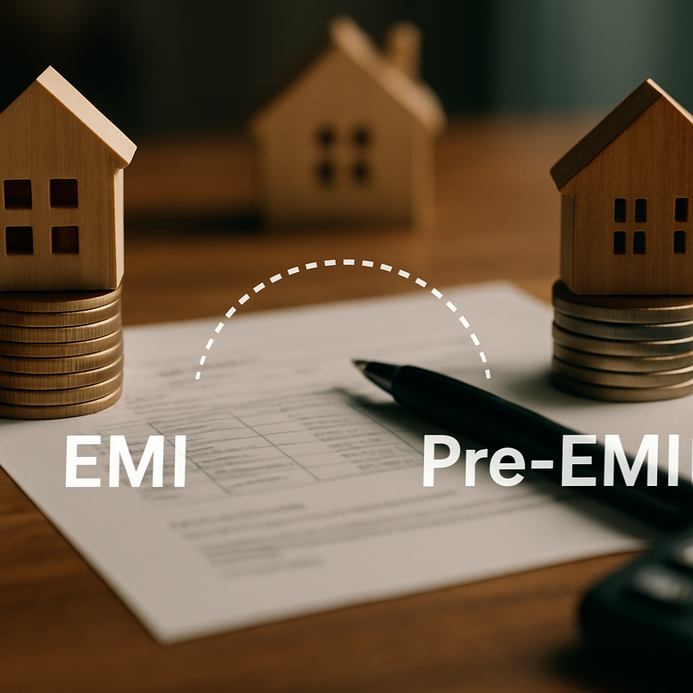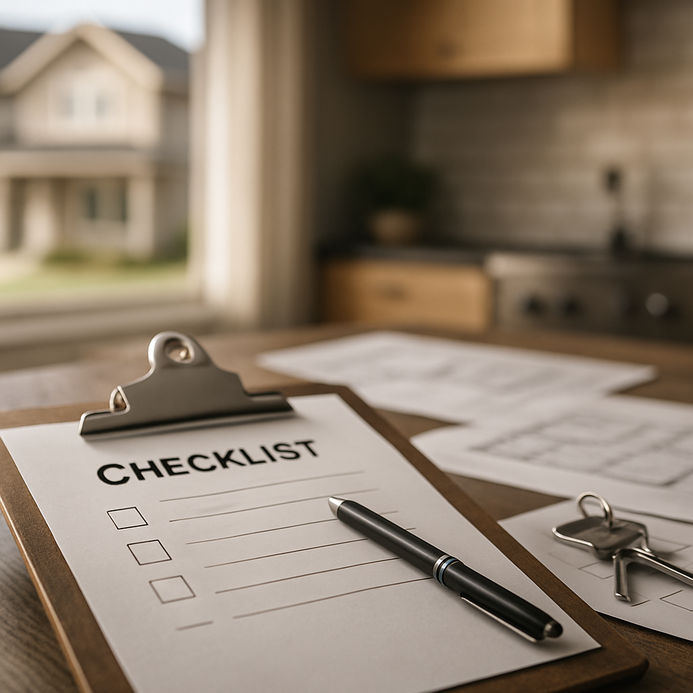Before Your Site Visit: 25 Important Questions to Check Off
Introduction: The Importance of a Pre-Site Visit Checklist
A pre-site visit checklist? Absolutely essential. It’s like your roadmap when checking out a property. If you’re heading for a site visit, this checklist helps you stay on track. You’ll know exactly what to ask and can dodge the pitfalls of impulse buying and trust me, no one wants buyer’s remorse.
Your checklist needs to be well-organized, hitting all the important notes, think property specs, legal stuff, and how much it’ll cost you. You might wanna inquire about local market trends, which can help you figure out if the property will appreciate.
Don’t forget about practical stuff too! Check out this handy table that lays it out:
| Category | Questions |
| Legal Aspects | Is the property legal and free from liens? |
| Amenities | What amenities are included? |
| Community Plans | Are there developments that could impact property value? |
| Financing Options | What financing options are available for this property? |
| Local Insights | What’s the crime rate and overall satisfaction in the neighborhood? |
These questions not only shed light on the property but also help you bond with the salesperson, showing you’re serious about potentially buying. Do your homework! It’s all about setting the stage for successful negotiations.
So, go into your property visit organized and you’ll make better choices about your future home. For a more in-depth guide, look at our piece on what to check before buying property.
Unveil the 50-50 payment plan
Legal Approvals: Ensuring Compliance and Safety
Planning to check out a property? You just gotta ensure all the legal approvals are sorted out first. Skip this, and it could be a recipe for disaster later on. Here are the must-verify approvals for a smooth experience:
| Legal Approval | Description |
| RERA Registration | Check if registered with RERA for transparency. |
| GHMC Approval | Look for approvals from the Greater Hyderabad Municipal Corporation (GHMC) for compliance. |
| Clear Land Titles | Confirm clear ownership with no legal disputes on the land title. |
Don’t forget to check those local regulations governed by RERA and municipal authorities. Be thorough with land titles and construction approvals.
Always ask the salesperson to show you the paperwork for these approvals. Knowing the legal scene boosts your confidence and keeps your investment safe. Resources like RERA Telangana can help you as well.
To sum it up, focusing on legal approvals can safeguard you from headaches down the line. Don’t skimp on this, make sure you’ve got everything in check for a smooth investment process. For more insights on project compliance, dive into our article on RERA compliance and its significance.
Project Timeline: Understanding the Journey Ahead
On a site visit, getting a grip on the project timeline is super important. You need to dig into details about construction phases and expected completion dates. Better yet? Here’s a table of 25 essential questions you might consider:
| Category | Questions |
| General Timeline | What’s the estimated start and completion date? |
| What phases does the project go through? | |
| How do you manage phases and transitions? | |
| Delays | What are the common causes of delays? |
| How do you communicate delays to buyers? | |
| Payment Schedule | What payment schedules are linked to the timeline? |
| Are there penalties if construction is delayed? | |
| Contingencies | What contingencies are in place for unexpected issues? |
| How do you ensure commitments are met? | |
| Updates | How often will I get project updates? |
| Who can I contact for progress questions? |
Delays happen. Understanding them can help you manage expectations. And timelines can vary based on local rules and builder skill levels. Lastly, knowing RERA regulations before starting out is vital; it helps you understand your rights and keep builders accountable.
You better add some extra numbers to that budget; hidden costs can really add up if you’re not careful. Talking to the salesperson with pointed questions may help avoid nasty surprises later. Here are some smart inquiries:
| Expense Type | Key Questions |
| Maintenance Fees | What are the monthly maintenance charges? Any expected increases? |
| Parking Costs | Is parking included? What are the costs for any necessary spaces? |
| Additional Fees | Are there any one-time fees or charges during construction? |
| Utility Charges | What utilities are included in the management fees? Are there average rates? |
| Tax Increases | How often are property taxes reviewed and raised in this area? |
Knowing these factors prepares you for the financial responsibilities ahead. Getting a handle on extra charges like transfer fees or community facility fees is key before putting your money down.
So yeah, proper budgeting means digging in with questions and understanding everything that’ll hit your finances, beyond just the property price.
Technical Specifications: Assessing Quality and Value
You definitely need to check out the technical specifications of properties. Doing this ensures you’re making a solid investment and grasping the long-term value of your new place. Keep these criteria in mind:
1. Construction Quality
Look closely at the building quality. Does it meet local codes? Examine things like:
| Feature | Importance |
| Structural Integrity | Keeps you safe during natural calamities. |
| Quality of Materials | Directly affects durability and maintenance costs. |
| Workmanship | Affects livability and aesthetic appeal. |
2. Materials Used
What materials are they using? Durable ones, like high-grade concrete and steel, mean fewer repairs down the line.
3. Safety Standards
Check compliance with safety regulations about fire safety and emergency exits, these details can help protect your investment.
4. Future-Proofing Investments
Explore smart home features when you visit. Things like automated lighting can really boost home value and comfort.
5. Energy Efficiency
Look for properties with energy-efficient systems, like solar panels. These can lead to savings over time.
For additional info on property standards and regulations, check out this Real Estate India – What is Mandatory Property Registration?. Want more? Look into our article on flat possession strategies to grasp what to expect when buying. Just don’t forget the significance of site visits—they’re vital for understanding real estate quality and value.
FAQ
Why is a pre-site visit checklist important?
A pre-site visit checklist helps to ensure you cover all essential aspects of the property, including legal compliance, quality standards, and potential hidden costs, allowing for informed decision-making.
What legal approvals should I check during a property visit?
Key approvals include RERA registration, clear land titles, and local municipal approvals. Verifying these can save you from future legal complications.
Engage the salesperson with detailed questions about maintenance fees, parking, utilities, and tax increases to better understand the ongoing financial obligations.
What technical specifications should I consider when evaluating a property?
Look for construction quality, materials used, safety compliance, energy efficiency, and any future-proofing features.













